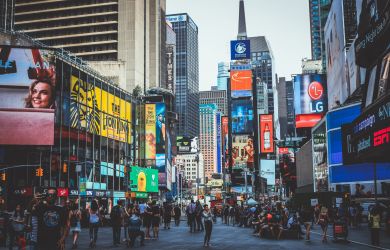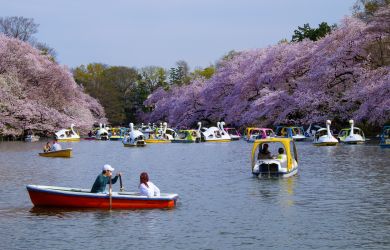
Originally published on metropolis.co.jp on February 2012

Every year around this time, you hear a lot of carping about how Valentine’s Day is a commercialized spectacle devoid of real romance, especially in a country where the holiday was imported by the chocolate manufacturers. Still, some of us like the idea of a day to recognize the importance of love in our lives, romantic or otherwise.
For ethical consumers, however, many Valentine trappings can be problematic. With the huge outpouring of yen associated with the holiday, it’s even more important to vote with your wallet. Not to worry! Even if you want to go the traditional route, we’ve got you covered with some options that show you care enough about your partner to care about their world.
The classic gift is chocolate, and Tokyo certainly doesn’t lack for options there. From high-end chocolatiers to your corner conbini, you’ll be seeing pink and red gift boxes stacked to the ceiling. Before you grab the nearest tasty treat though, take a moment to find out where the cocoa came from. Much of the cacao beans used in chocolate manufacturing are produced in countries where labor and environmental regulations are shaky at best. The Ivory Coast, which supplies 30-40 percent of the world’s cocoa annually, has been called out for using child labor and participating in trafficking.
The easiest way to make sure your chocolate doesn’t have a bitter history is to buy certified fair-trade. Some of our favorites available around town are Zotter, an Austrian company that makes fair-trade organic chocolates and realizes in-house the whole production process, bean to bar; and People Tree, which might be more famous for its fair-trade garments, but also has delicious chocolates whose sweetly illustrated wrappers we love.
If your sweetie doesn’t have a sweet tooth, you may be thinking about some roses. Not so fast, Romeo. Likely those blooms came from countries on the other side of the planet, like Kenya or Ecuador. The transportation alone has a substantial environmental impact, but as the industry is very capital intensive, the flowers are increasingly grown by large, foreign-owned producers, providing only jobs at the lowest wage levels, and using unsustainable farming practices. If you must have roses, consider domestic varieties rather than the traditional long-stems, and a potted bush rather than cut ones, which will not only last longer, but will also brighten your beloved’s abode. If you are a little more flexible, there are some flower shops in Tokyo specializing in locally-sourced, organic flowers. We like Wanabiya in Nishi-sugamo, which even makes edible arrangements of flowers and herbs.
If things are getting very serious, you may be thinking about jewelry, but we run into problems here too. Despite the popularity of the movie Blood Diamond a few years back, there is still very little awareness in Japan about conflict gemstones. Precious metals are just as troublesome, since mining practices often have a huge negative environmental impact, labor issues abound, and soaring demand and prices allow them to fuel ongoing conflicts.
If you go to a brick-and-mortar shop in Tokyo, you are likely to get confused looks if you ask about sourcing. Even the stores which are prepared to talk about it can generally provide only a Kimberley Certification, which is problematic due to its very limited definition of what constitutes a conflict stone. Still, even asking the questions can have a positive impact by demonstrating a customer interest, and there are also online shops that specialize in low-impact, conflict-free jewelry, like Brilliant Earth, which ships to Japan and has a huge selection.
So there it is—some more ethical twists on your traditional Valentine’s Day gifts. Now you have no excuse not to get out there and feel the love!
For more information on the companies and shops mentioned, see http://zotter.jp, www.peopletree.co.jp, www.wanabiya.com, and www.brilliantearth.com





